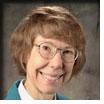
Research Professor Emerita
Interactional linguistics, conversation and grammar, cross-linguistic studies of morphosyntactic patterns, languages of East Asia (Chinese, Japanese, Korean, Hmong)
For Interactional Linguistics Bibliography, click here.
For Curriculum Vitae, click here.
Bio:
The question of how grammars of language come to be the way they are is one of the most fundamental questions that linguists can be concerned with. My research centers around the role of everyday embodied conversational interactions in shaping morphosyntactic and prosodic patterns, an area known as Interactional Linguistics. I place a premium on cross-linguistic as well as language-specific investigations of how grammatical patterns can be seen as emergent from the exigencies of ordinary talk-in-interaction. My primary language areas are Mandarin Chinese, Wappo (a now-extinct language isolate of northern California), and English. I have also worked with Japanese, Korean, and Hmong.
Interactional Linguistics specifically seeks to explain how everyday social interactions motivate the phonological, prosodic, semantic, and morphosyntactic patterns we call ‘grammar’. Interactional Linguistics intersects directly with the study of conversation, particularly Conversation Analysis, and considers such questions as
- how does looking at language in everyday use affect what we understand grammar to be?
- how can we understand grammar as being both cognitive and social?
- how does the sequential, temporal nature of everyday interactions influence the way speakers store, access, and retrieve their experience with language?
- what are the categories and units of grammar? Which of the ones we’ve grown up on, and been trained to observe, would we see if we looked at just interactional data? Do everyday social interactions provide empirical support for traditional grammatical categories like ‘nouns’, ‘verbs’, ‘adjectives’, ‘sentences’, ‘clauses’, ‘question intonation’, ‘passive’, etc.? Or do we need new grammatical ‘units’?
- how do the categories and units of grammar arise from recognized patterns in the way social interaction is organized?
- what does grammar have to do with ‘taking turns’?
The linguistics faculty at UCSB combine expertise in many specific languages and language areas, as well as in grammar, semantics, discourse, phonetics, phonology, language change, sociocultural linguistics, and psycholinguistics. We have a congenial and extremely active and productive faculty who share a common vision of what it means to do linguistics.